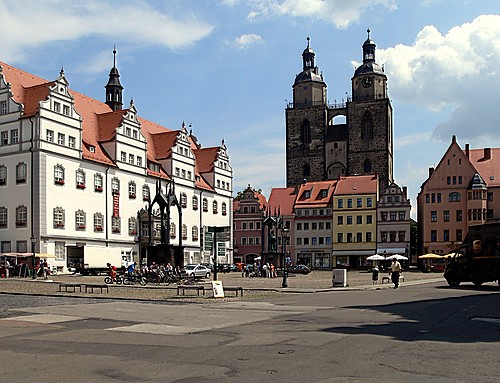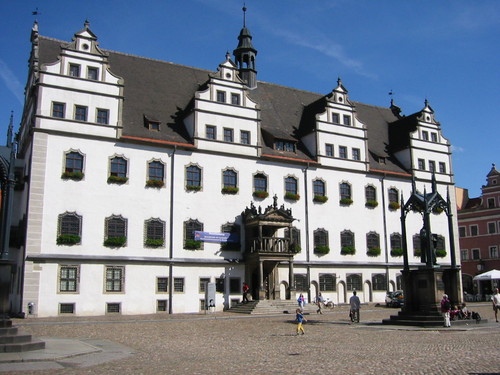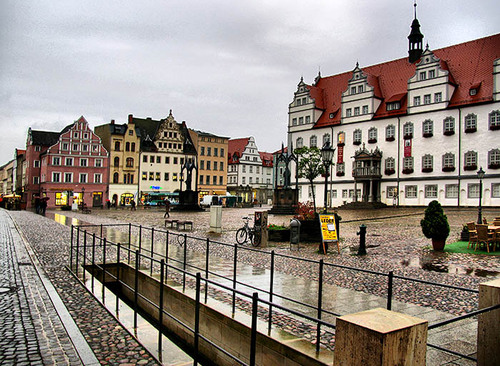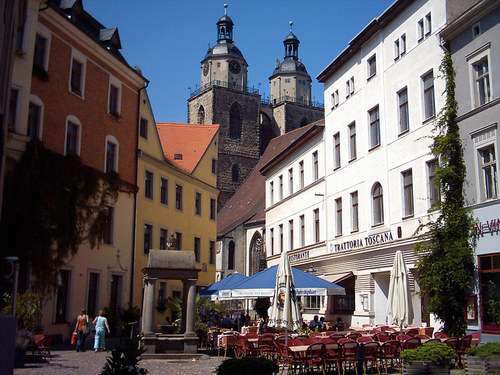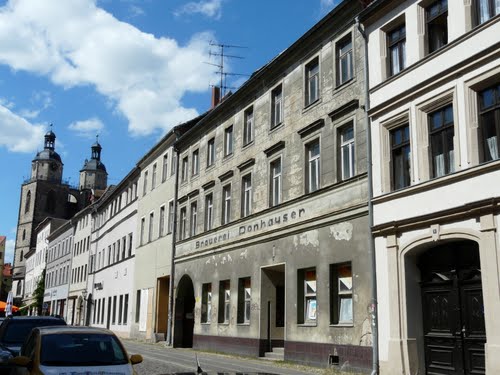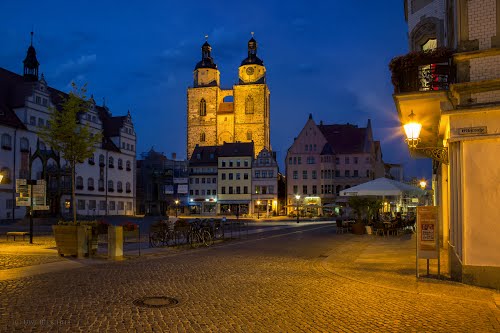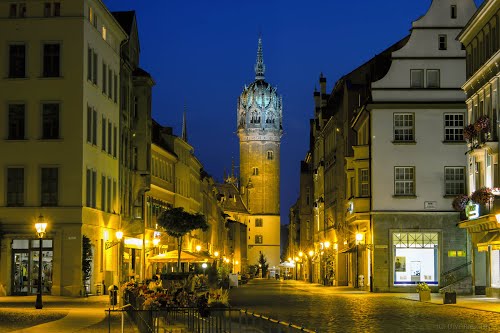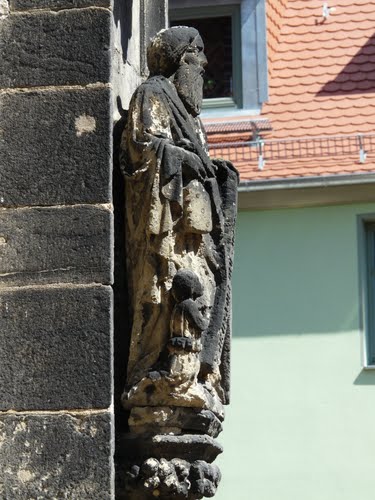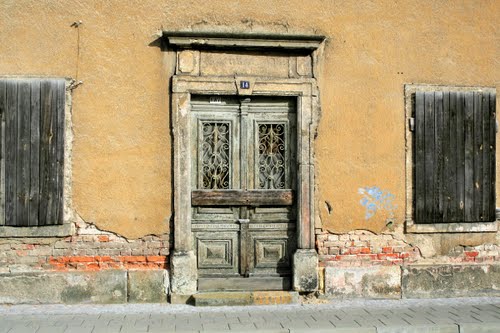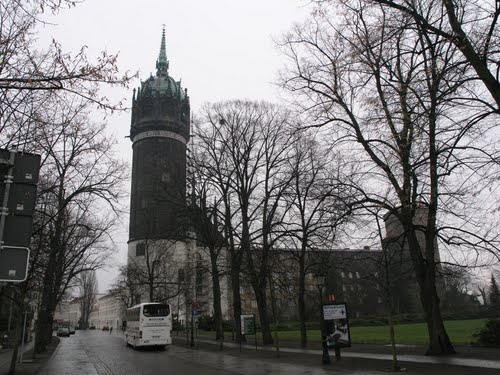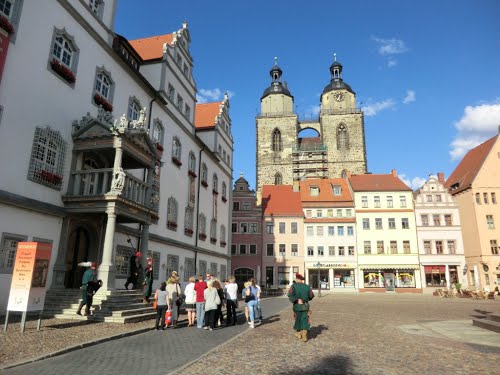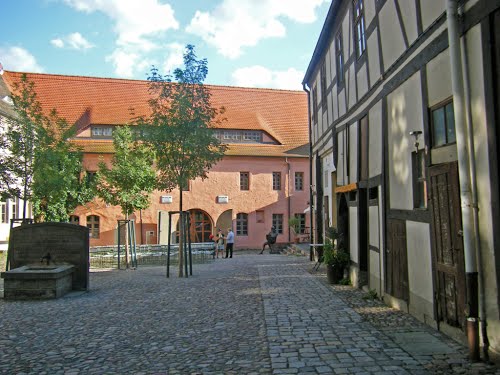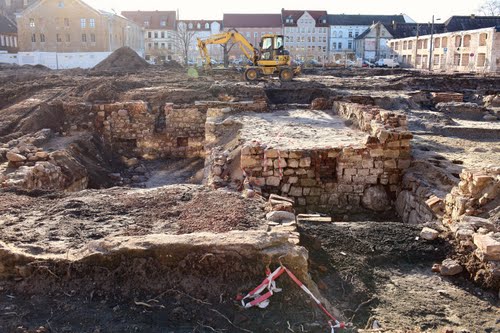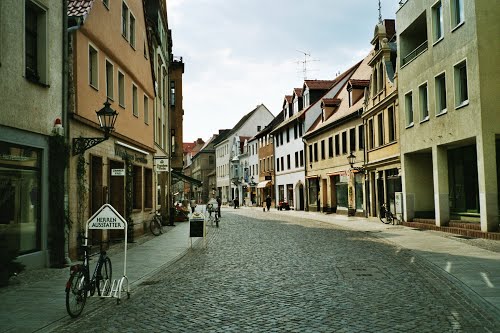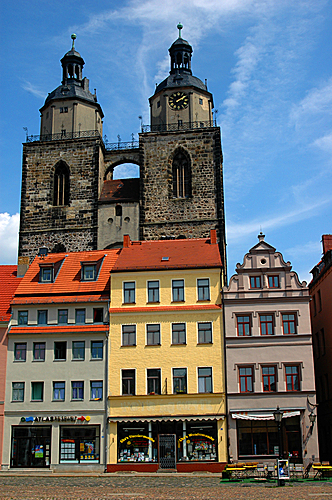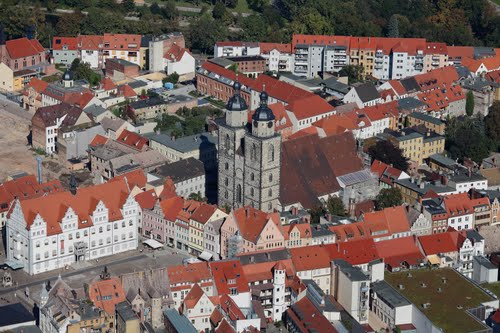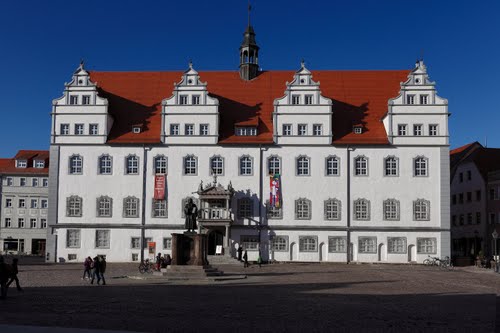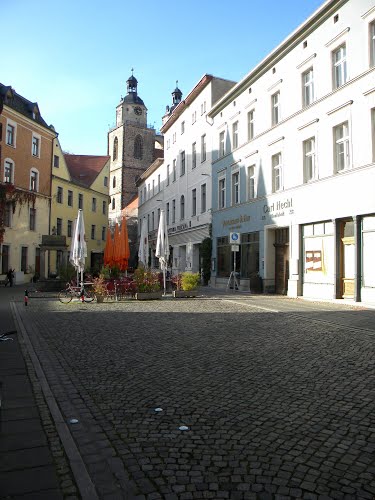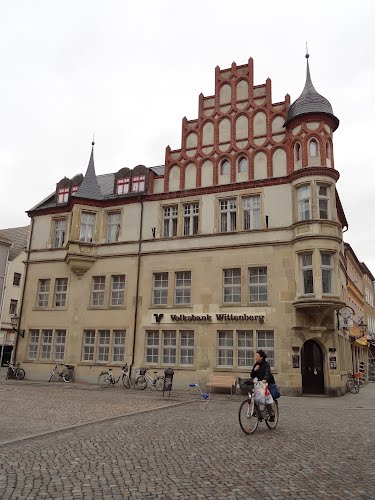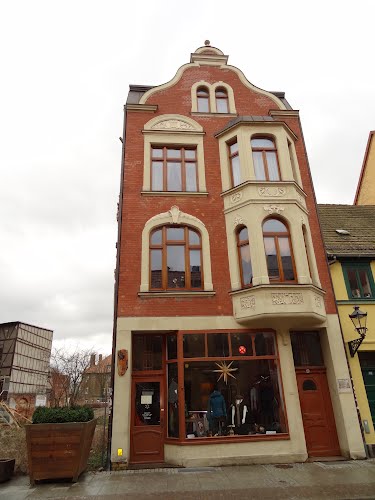Wittenberg is home to numerous historical sites, as well as portraits and other paintings by Lucas Cranach the Elder and Younger. On the doors of All Saints' Church, the Schlosskirche ("castle church", built in 1496–1506) Luther is said to have nailed his 95 theses in 1517. It was seriously damaged by fire in 1760 during a bombardment by the French during the Seven Years' War, was practically rebuilt, and was later (1885–1892) restored. The wooden doors, burnt in 1760, were replaced in 1858 by bronze doors, bearing the Latin text of the theses. Inside the church are the tombs of Luther and Philipp Melanchthon, and of the electors Frederick the Wise (by Peter Vischer the Younger, 1527) and John the Constant (by Hans Vischer), and portraits of the reformers by Lucas Cranach the Younger.
St. Mary's Church, the parish church in which Luther often preached, was built in the 14th century, but has been much altered since Luther's time. It contains a magnificent painting by Lucas Cranach the Elder, representing the Last Supper (with the faces of Luther and other reformers), Baptism and Confession, also a font by Hermann Vischer the Elder (1457). In addition, there are numerous historic paintings in the church.
The ancient electoral palace is another of the buildings that suffered severely in 1760, it now contains archives.
Martin Luther's home, the Lutherhaus, where he studied and lived both before and after the Reformation, is now a museum containing many artifacts from his life. Melanchthon's house and the house of Lucas Cranach the Elder, mayor of Wittenberg, can also be found here. Statues of Luther (by Schadow), Melanchthon and Bugenhagen embellish the town. The spot outside the Elster Gate where Luther publicly burned the papal bull in 1520 is marked by an oak tree.


